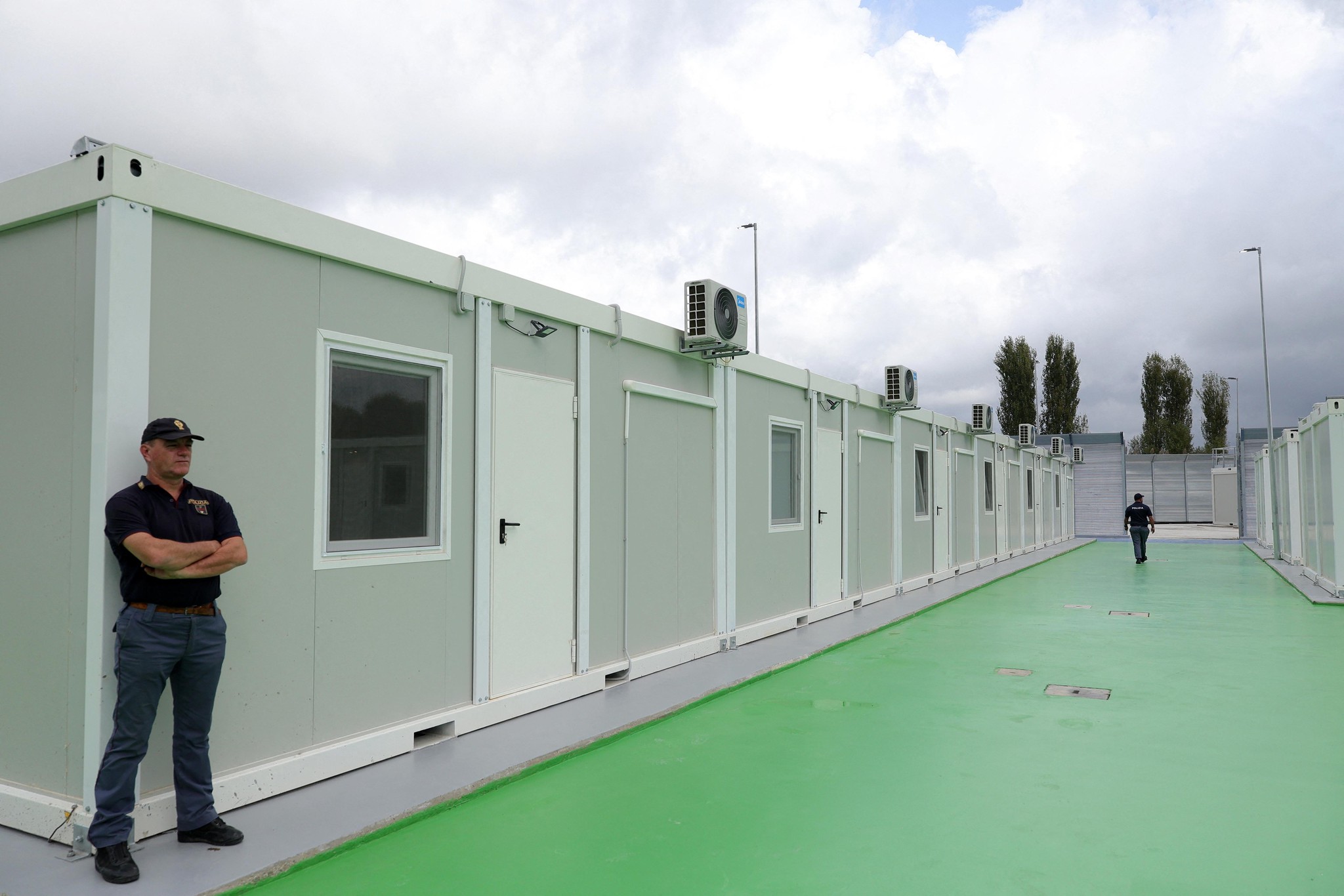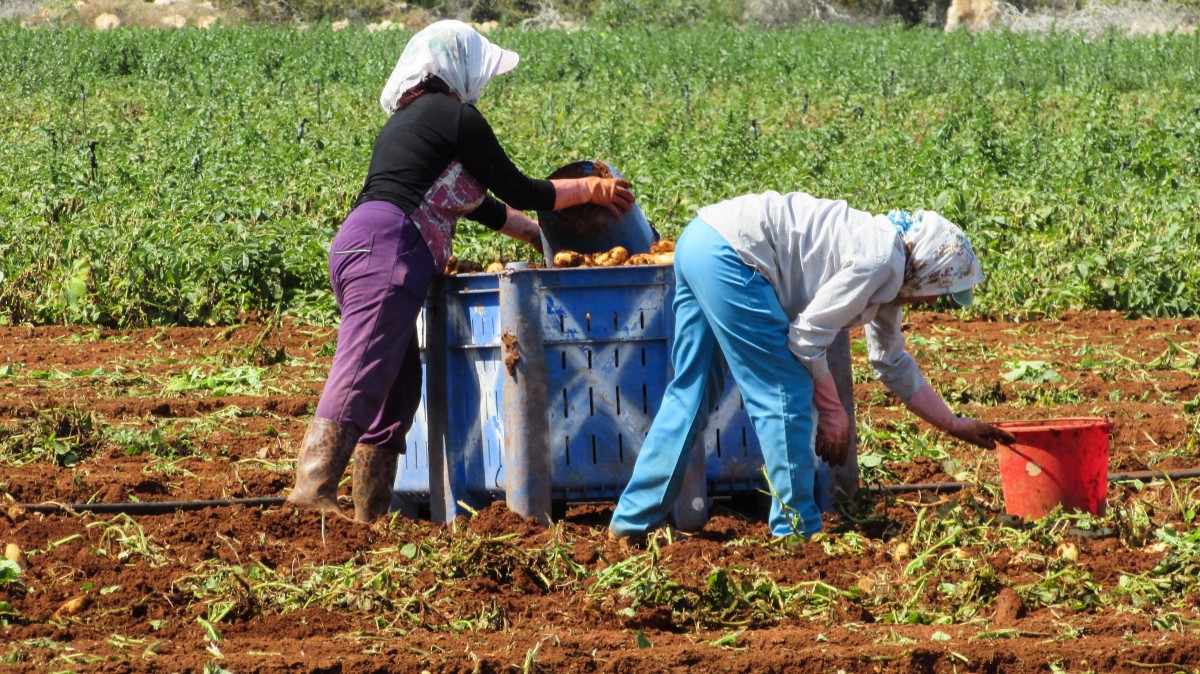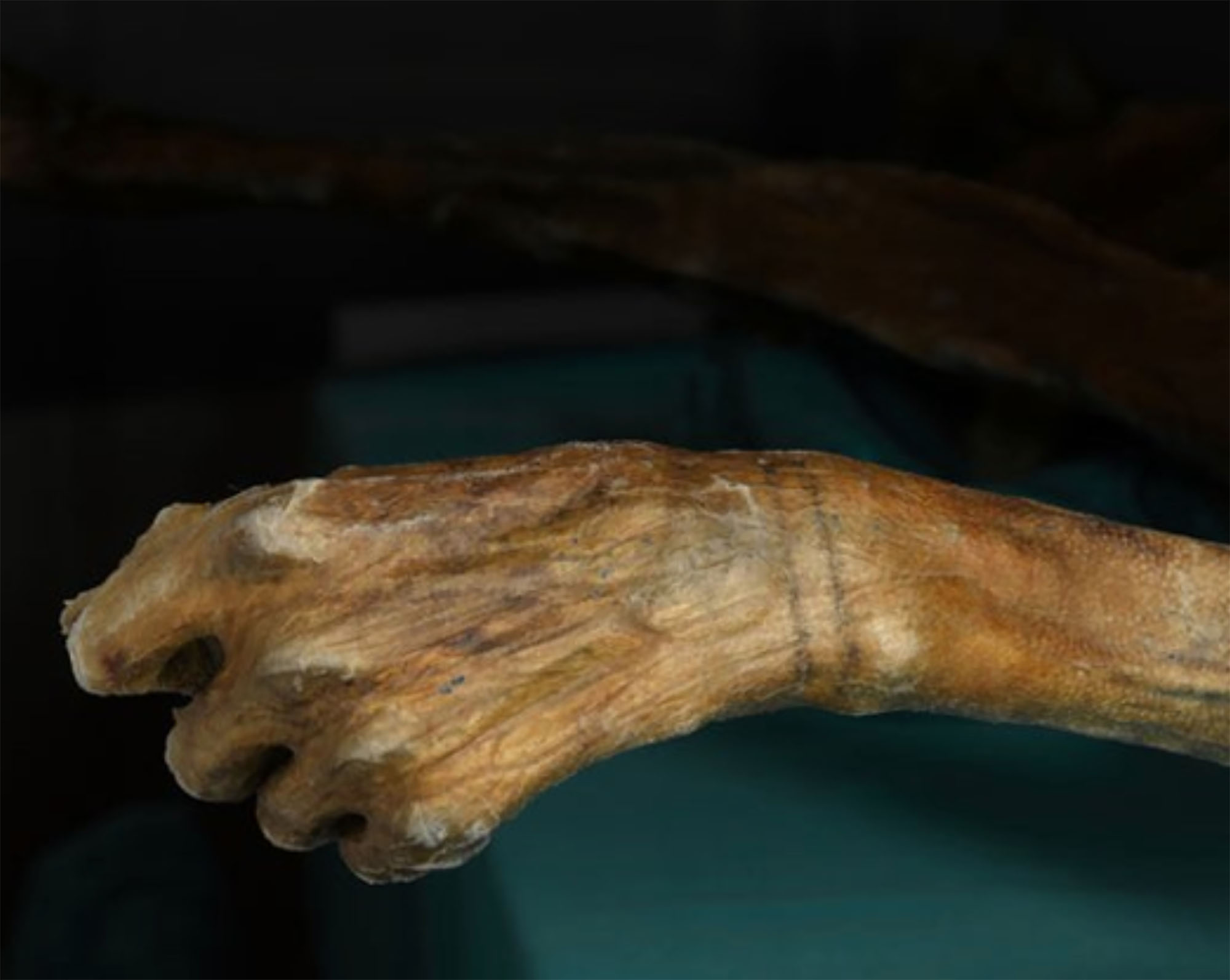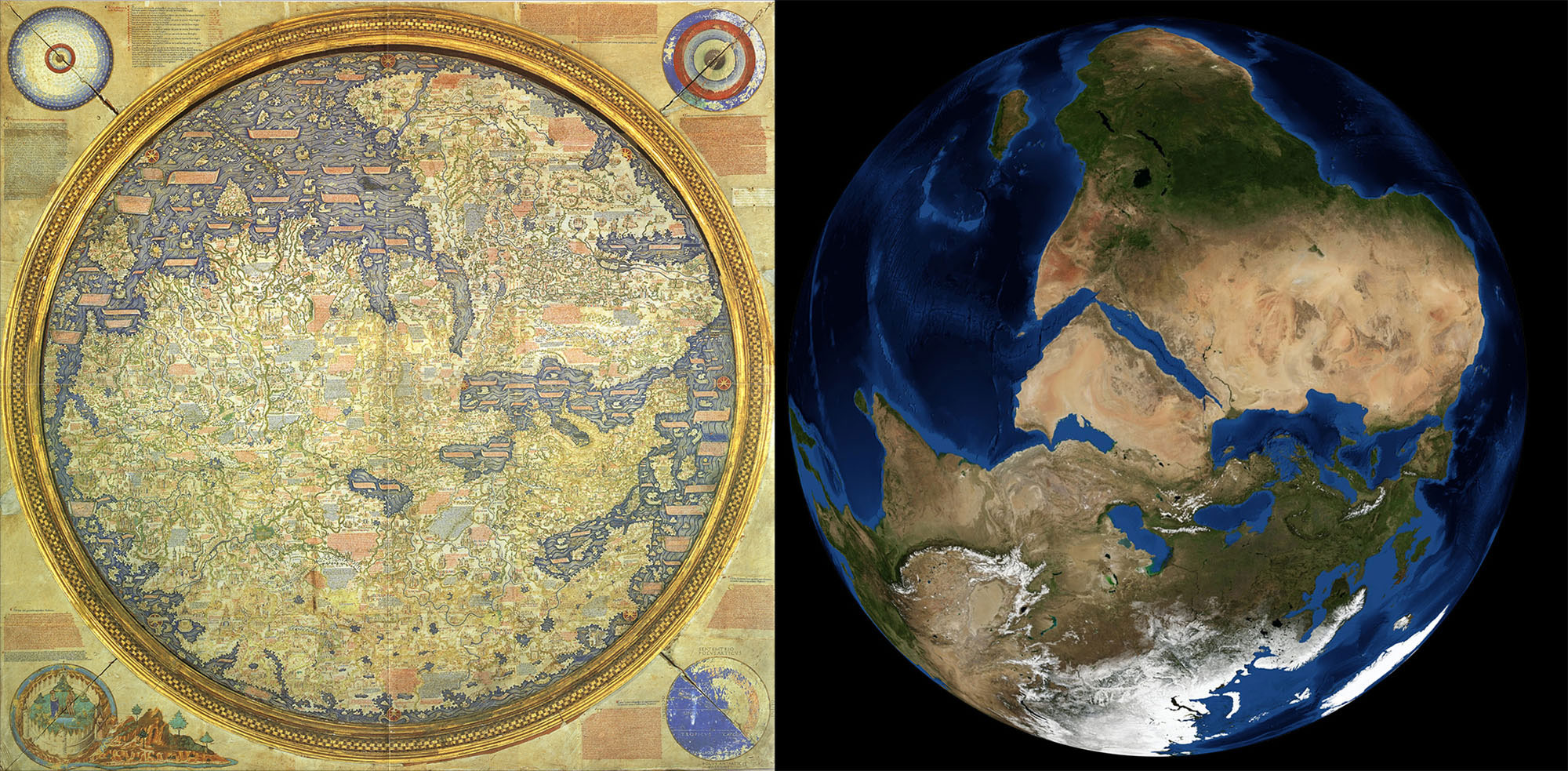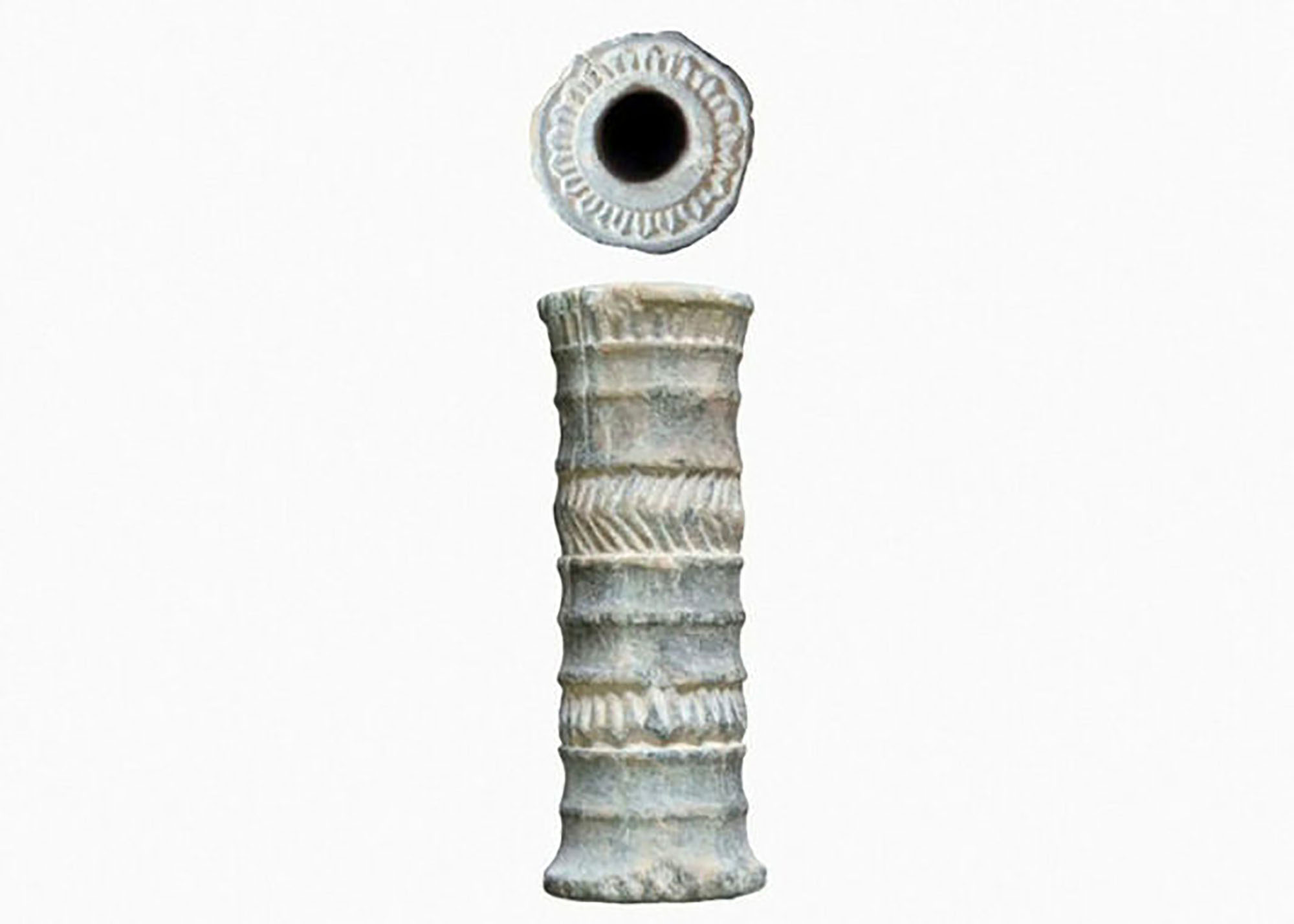"We have to get the people to have control of everything."
- We take advantage of the round table “Resistance and the construction of popular power in Southern Europe” organized by Askapena at the Hala Bedi bar in Vitoria-Gasteiz to interview Italian activist Teresa Cacere (Je So’ Pazzo collective). It explains how they face the harsh social reality of Naples.

Naples makes you militant. How and why did his political militancy begin?
I've had social awareness since I was young. My studies have taken me to Naples. Its social context is very fruitful compared to that of other Italian cities. Militancy is for me a way of life, something that comes out of me naturally. Even if it sounds like an anomaly, our mayor in Naples, Luigi Dismitris (Orange Movement), is very close to the social partners and that has contributed to the development of many social centres and to the participation of young people.
You are part of the collective Je So’ Pazzo. What does your project offer to the city of Naples?
Our project began in March 2015 after the occupation of a building in the city center. After much work, we have managed to put in place different dynamics, including what we call the “rural outpatient clinic”. Although in Italy health care is public, it is not able to meet the needs of the people and this innovative project we created to respond to this problem. Thanks to the collaboration of several doctors, we offer once a week consultations, ultrasound and healthcare in the occupied area. We cannot hide the success of the project and we have managed to promote direct contact with those who cannot go to hospitals or health centres in Naples. I could say that we are reducing the exclusion of neighbourhoods.
The second project aims to put an end to the precariousness and tradition of very precarious working conditions in Italy. To this end, we have launched the Popular Working Chamber “Camera Popolare del Laboro”. The essence of this movement is the defence of the rights of all workers, especially workers who work in black and have little rights. In Naples we want to create defence networks for decent work and based on the struggles of all the workers.
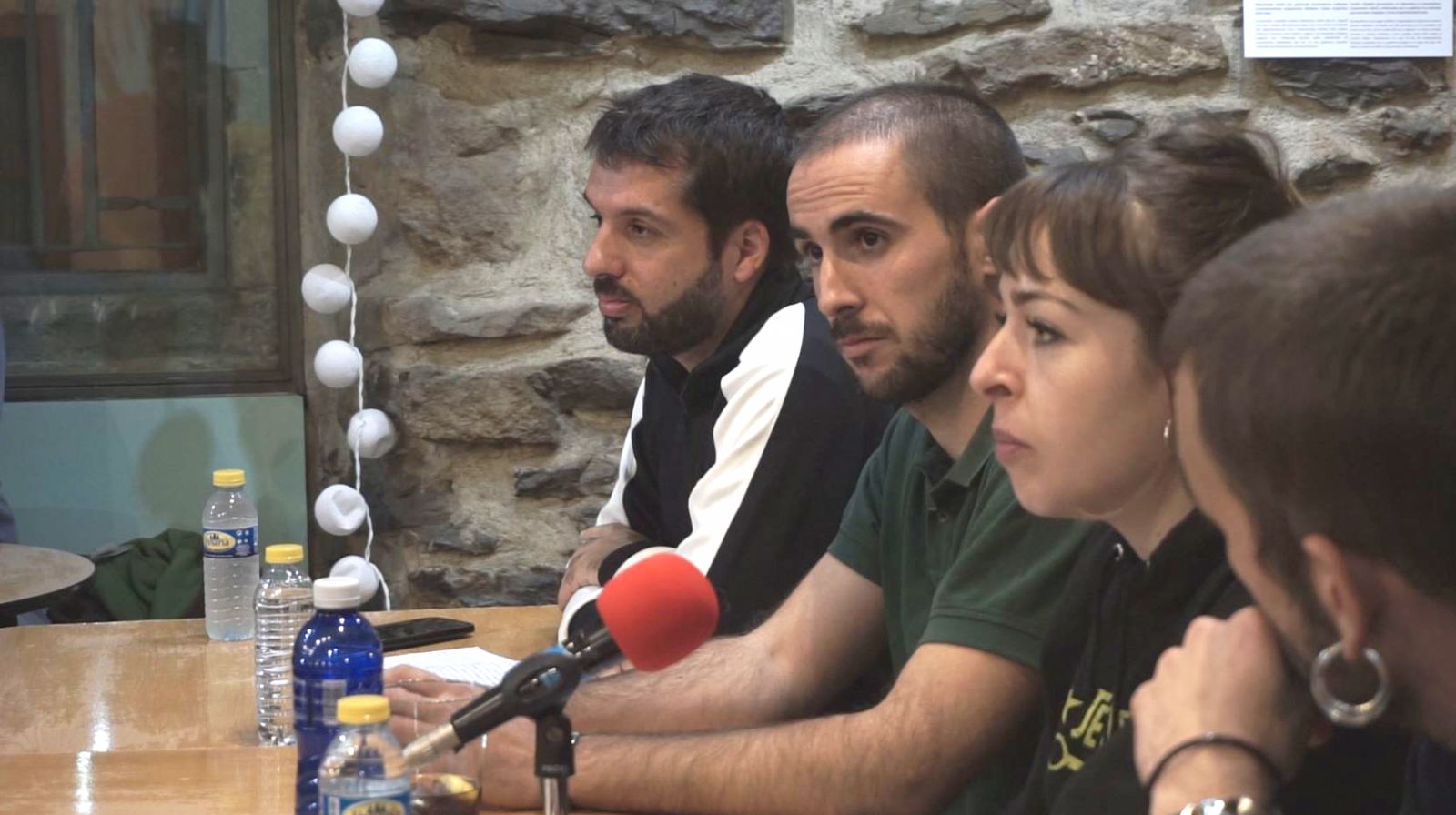
In this context, what is Camorra's role?
Camorra is a tragedy for Naples. It is a chronic problem and, unfortunately, the mafia networks are still very strong in Naples. We, as an anti-mafia movement, think that education is the most powerful weapon we have to fight it and try to develop a leisure offer for the smallest of the neighborhoods. We strengthen the social inclusion of young people through sport or games in the poorest neighborhoods, so that they live and grow as far away as possible from Camorra.
This serious crisis has created and strengthened new political actors (Podemos, Syriza, CUP) in the countries of southern Europe: What is the situation in Italy? As part of the
Je So’ Pazzo project, our goal has always been to bring together all the knowledge and social struggles and to federate at the national level. We want to influence over political parties. We are creating structures to respond to the problems of citizenship at local and national level. An example of all this is what we have done with the People’s House of Labour. The organization is spreading to other Italian cities and in some cases is already well established. I think that the struggles based on collaborative work bring greater results. Like many Italians, I am not represented by any political party, I do not feel identified in any of them, but this has never been a problem in carrying out my militant work.
Within a month, the Italians will have to pronounce on the constitutional reform promoted by Matteo Renzi, which seeks to reform the Constitution. What reading do you make of the referendum?
I have the same view as that expressed by thousands of Italian social organisations in the referendum. Renzi and the PD have pushed for this reform with the aim of further reducing decision-making centres, which have been very restricted since today in Italy, and leaving power in the hands of a few. Our policy is to empower the country and have the capacity to make decisions of its own little by little to improve the future of Italy. I believe that our proposal and that of the government are going in the opposite direction.
Have you empowered citizens? What is the formula?
In this area, we do not have magic recipes in Italy either. I believe that it is a first step in our militant activity to give importance to the place that needs the empowerment of citizenship. Empowerment is part of the philosophy we call “polulare control” or “popular control”. When we talk about popular control, we are saying that it is essential to politicise citizenship. We are talking about removing the population from xenophobic populism and removing citizenship from the endogamic corruption activities of southern Italy. After all, we must ensure that the people have control of everything.
In this way we have launched many initiatives, cultural shows, mobilisations and campaigns against the purchase of votes, which are very evident in southern Italy.
In many parts of Europe there has been a new wave of xenophobia. What is the situation in southern Naples and Italy? The
fight against the populist movements of the far-right is not the current one in Naples. Since its origins it has been a very diverse city and thousands of cultures have lived together. There has always been a mythical people in Naples who have fought against racism and xenophobia. Today, the daily work of social movements of all kinds is still there and the message against the different is still moving away from political centrality. We have launched many projects to raise awareness of the humanitarian crisis that the refugee crisis has brought.
Florentzia, 1886. Carlo Collodi Le avventure de Pinocchio eleberri ezagunaren egileak zera idatzi zuen pizzari buruz: “Labean txigortutako ogi orea, gainean eskura dagoen edozer gauzaz egindako saltsa duena”. Pizza hark “zikinkeria konplexu tankera” zuela... [+]
Today’s Venice is built on an archipelago of 118 islands. These islands are connected by 455 bridges. The city is based on mud rather than Lura. Millions of trees in the area were cut down from the 9th century onwards to build piles and cement the city. Years have passed and... [+]
Although it was thought that in most of the cities of the Roman Empire there were jails, little remains have been found of the prisons of the time in the fields.
Recently, however, the archaeologist at the University of Copenhagen, Matthew Larsen, has identified the Roman... [+]
Since they discovered the corpse of Ötzi in the Alps in 1991, the 5,000 years preserved in very good condition have been used for numerous investigations. From the beginning, the 61 tattoos he had on his skin were the ones that cared for him. Experts believed these tattoos were... [+]
Venice, 24 April 1459. The monk and cartographer Fra Mauro finished the map of his world in his cartography workshop in the monastery of San Michele in Murano. This work was done on behalf of the Portuguese king Alfonso V.aren and, once the map was completed, it was sent to... [+]
A group of researchers from the Italian University of Padua analyzes a small stone boat discovered in Iran in 2001. In particular, the fingerprints inside the bottle have been analysed and have been shown to contain fine hematite – red mineral oxide, manganite, braunita and... [+]














